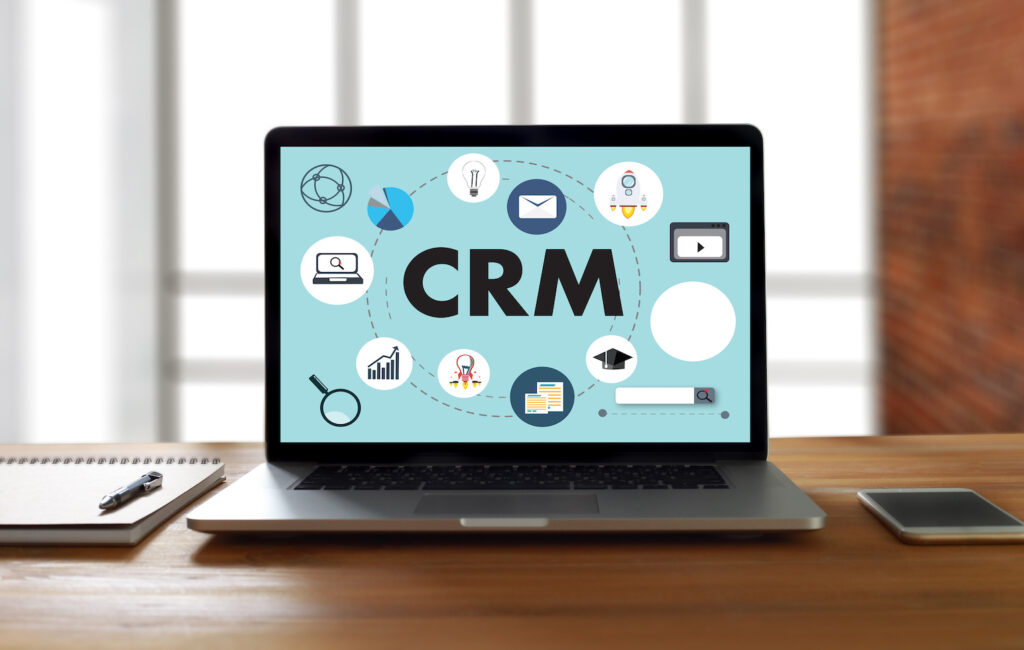Customer relationship management (CRM) systems have become mainstream in companies of all sizes, and for good reason. They help companies manage customer interactions and data throughout the customer lifecycle. However, implementing a CRM system in small and medium-sized enterprises (SMEs) can be challenging, and a successful outcome depends on several factors. In this article, we will explain how the smooth implementation of a CRM system can succeed even in an SME without its own IT department.
Target definition
Before starting the implementation, it is important to know the goals of the CRM system. This is the only way to ensure that the system meets the company's specific requirements and delivers measurable results.
Choosing the right CRM system
There are many different CRM systems, each with its own features and capabilities. When choosing a CRM system, it is important to consider the specific requirements of the company and select a system that can meet those requirements.
Preparations for implementation
Implementing a CRM system requires planning and preparation. This includes defining processes, preparing data, and training employees. A well-prepared implementation minimizes the risk of delays and ensures that the system is ready for use as quickly as possible.
Cooperation with an IT service provider
A successful implementation of a CRM system in an SME can only succeed if it is accompanied by an IT service provider. IT service providers bring the necessary expertise, experience and resources to the implementation process and ensure that the system is configured and deployed correctly.
Step by step approach
Implementing a CRM system all at once can be overwhelming for a company's staff. It is recommended to implement the system in stages, starting with the most important functions and gradually adding more features. This approach helps minimize business disruption and allows employees to adapt to the new system at their own pace.
Trainings and support
Once the CRM system is up and running, it is important to provide ongoing training and support for employees. This enables them to make the most of the system and ensure that it achieves its full potential.
Continuous evaluation and further development
Implementing a CRM system is not a one-time event. It is important to continuously evaluate and refine the system to ensure that it continues to meet the evolving needs of the business.
The successful introduction of a CRM system in an SME thus requires careful planning and preparation overall, including the choice of the right CRM system and support from an IT service provider. This is the only way to ensure that the investment in a CRM system delivers the desired results and contributes to entrepreneurial success.
Target definition
Before starting the implementation, it is important to know the goals of the CRM system. This is the only way to ensure that the system meets the company's specific requirements and delivers measurable results.
Choosing the right CRM system
There are many different CRM systems, each with its own features and capabilities. When choosing a CRM system, it is important to consider the specific requirements of the company and select a system that can meet those requirements.
Preparations for implementation
Implementing a CRM system requires planning and preparation. This includes defining processes, preparing data, and training employees. A well-prepared implementation minimizes the risk of delays and ensures that the system is ready for use as quickly as possible.
Cooperation with an IT service provider
A successful implementation of a CRM system in an SME can only succeed if it is accompanied by an IT service provider. IT service providers bring the necessary expertise, experience and resources to the implementation process and ensure that the system is configured and deployed correctly.
Step by step approach
Implementing a CRM system all at once can be overwhelming for a company's staff. It is recommended to implement the system in stages, starting with the most important functions and gradually adding more features. This approach helps minimize business disruption and allows employees to adapt to the new system at their own pace.
Trainings and support
Once the CRM system is up and running, it is important to provide ongoing training and support for employees. This enables them to make the most of the system and ensure that it achieves its full potential.
Continuous evaluation and further development
Implementing a CRM system is not a one-time event. It is important to continuously evaluate and refine the system to ensure that it continues to meet the evolving needs of the business.
The successful introduction of a CRM system in an SME thus requires careful planning and preparation overall, including the choice of the right CRM system and support from an IT service provider. This is the only way to ensure that the investment in a CRM system delivers the desired results and contributes to entrepreneurial success.

